
by Michelle Carton | Apr 22, 2018 | News
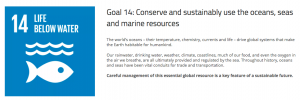
The days following World Water Day, we continued to explore water in all its ways, by exploring the United Nations SDG’s. We even got to meet with self-proclaimed mermaid–scuba diver, author, and global conservationist, Jennifer Nolan. Ms. Nolan has done some amazing conservation work with another activist and conservation colleague, Jim Abernethy, and has connected with Tudor Young Global Citizens 14 times in the past two years! We are so grateful for her knowledge and passion.
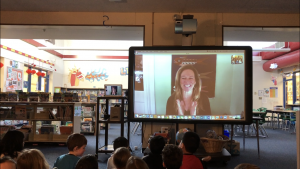
Ms. Nolan connected with us from thousands of miles away, over skype, imparting her passion for the fate of the world while teaching us some valuable facts we should know about ocean life.
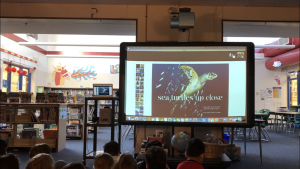
Even though some facts are hard for us to hear and wrap our head around, she was very adamant that while we can talk about all the problems, like that the rate of extinction is at 100 times faster than the normal rate, it’s important that we look at solutions that we can do, right here at home. It’s also important that we share the knowledge we get, with as many people as possible, and continue discovering ways we can help our planet. Ms. Nolan shared a few key pieces of information for us to know, to help us become passionate about protecting what we love.
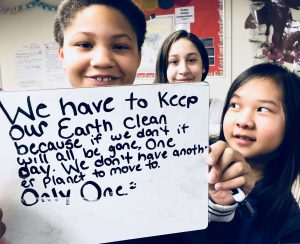
*Sharks have been in the ocean for 400 million years
*90% of large predatory sharks have been wiped out, and 250,000 sharks are killed a day.
*80% of sharks are killed for a delicacy called Shark Fin soup, which is not nutritious or flavorful!
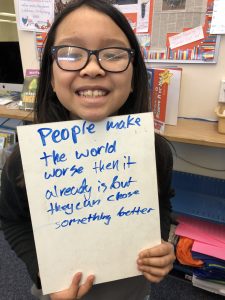
*Out of the 400 species of sharks, there are only a handful that are dangerous for humans.
*Shark attacks are moreso shark accidents, as they don’t have the ability to distinguish between food and non-food (they don’t have hands) without using their mouths.
*Divers wear dark colors, which is why sharks aren’t bothered with them.
*Television has done a lot to make people afraid of sharks, when there doesn’t need to be.
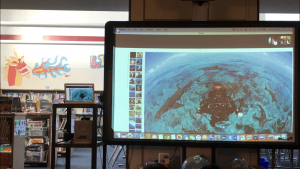
“You are not too young to make a difference” was the driving point with Ms. Nolan and we believe it. We shared what we are doing to be good earth citizens and she was impressed. Alaskan students are doing their part.
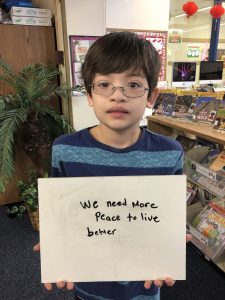
Lots of global citizens are coming together as well, and we were optimistic in learning that, even though all 7 species of sea turtles are endangered, the New York time recently shared that the sea turtle populations have begun to turn around and their populations are steadily on the rise!
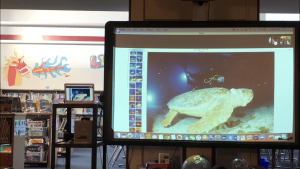
Joaques Cousteau said it best with, “we protect what we love” and it is so true. The more we learn about the ocean, the more we love it and want to protect it. Thank you so much Jennifer Nolan, for supporting our endeavor to become global citizens.
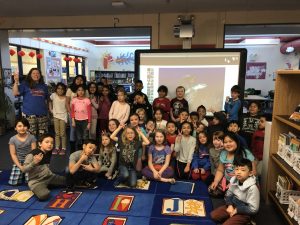
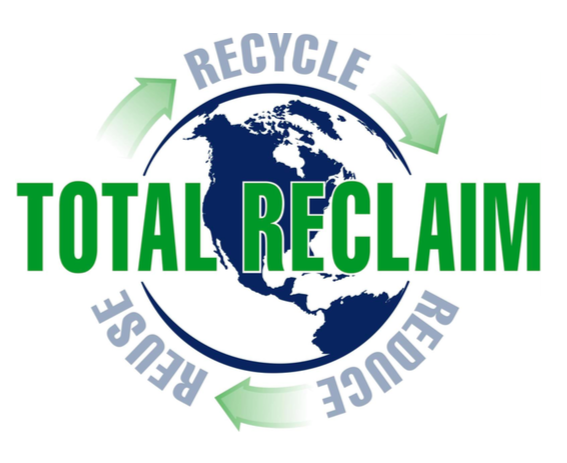
by Michelle Carton | Apr 22, 2018 | News
In honor of Earth Day 2018, we invited in a special guest expert from the community, Gary Smith from Total Reclaim Alaska, to give us the scoop on most things waste here in Alaska. They are a very environmentally driven organization and they are committed to making Alaska green in every way they can. Click on the pictures below to make them bigger.
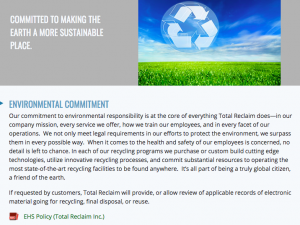
We learned so much that we had no idea about before! This was a really epic Earth Day learning session! Many of us were really eager to share our experience and ask questions that would help us be better protectors of The Last Frontier. Check out the journey that blew our minds.
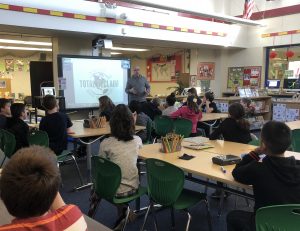
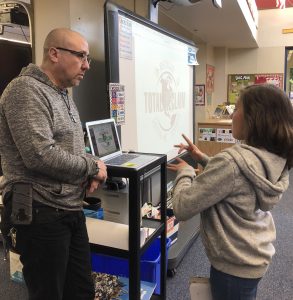
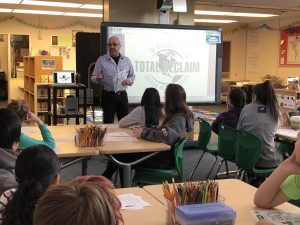
First, we began by student groups brainstorming the different types of waste we have, from metals to rubber, cardboard to oils and toxins. From there, as we shared out, we learned what can and can not be recycled.
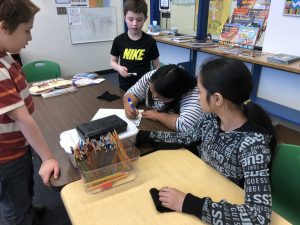
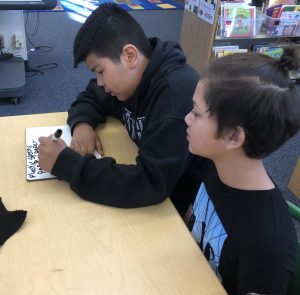 .
.
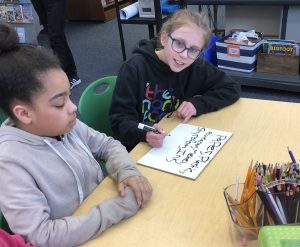
Some key moments of wisdom followed. Can thin plastic, often used as packaging be recycled? Yes, but only some of it. Well….how can you tell? Thin plastic can be recycled (at special locations) ONLY if it is stretchy plastic (which is polyethylene film). There are different kinds of aluminum. Aluminum which is a non-ferrous metal can be recycled and should be recycled, but in Alaska, Aluminum foil cannot be recycled.
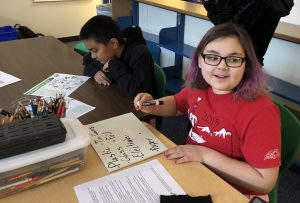
We got a chance to share our knowledge of materials, recycling, and earth care as well. Many of us knew about the dangers of single use plastic, that pizza boxes can’t be recycled, and that some plastics can be recycled, while others can’t. We had lots of questions about ferrous and non-ferrous metals, how to recycle certain items, and the current earth friendliness of Alaska’s waste and recycling.
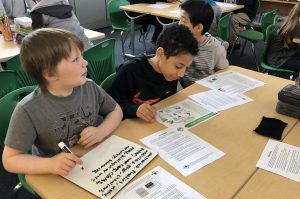
When it comes to what ends up in the landfill, and where the landfill(s) are even located, we had no idea what we were about to uncover. To make landfills in Alaska, a giant hole is dug in the ground, and a protective layer placed down to avoid the toxins coming out into the ground. BUT…right where Merrill Field Airport is was once a giant landfill (that was covered once it was full), and for some reason, because the protective layer between the landfill and the ground wasn’t done right, is now LEAKING (called leaching) out toxins into the ground all around it. OH MAN, that’s terrible.
De La Vega Ball Fields was also a landfill that was covered? Many of us always wondered why when being there in the summer, many for soccer, there are so many bugs and it often smells stinky! The part we learned that shocked us the most is that when snow melts and become water at the bottom of the landfill, it is pumped out of the landfill and then DUMPED OUT INTO THE BAY (our local ocean waters where people fish). One student asked why it wasn’t purified and turned back into useable water. We were informed that it is filtered out for solid waste (like poop) but the rest of it has too many toxins in it to be able to be filtered and used for anything. OH MAN!
We learned that Alaska is behind many other states when it comes to recycling measures but that as of recently progress has been made, though we have a ways to go. It is up to us to be the generation to spread the knowledge. There are items that other states recycle that we simply cannot. Most of our recycled materials have to be carried out of Alaska on a barge, which makes it challenging and expensive. I found this article that gives more information on recycling issues in Alaska.

One amazing thing that Total Reclaim Alaska is doing is going out to villages to teach about recycling and collecting items to be recycled, like old computers and TV’s, lightbulbs and other items so they can be sent out on the barges.
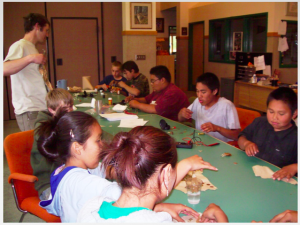
Those items are brought back to Anchorage on small planes and boats! Way to go Total Reclaim Alaska!
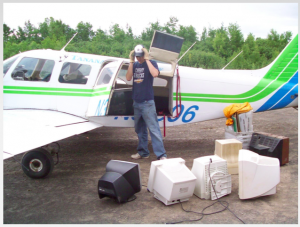
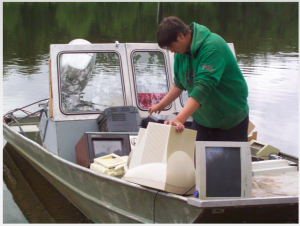
Total Reclaim Alaska recycles lots of materials many of us didn’t even know can be recycled from refrigerators to lightbulbs, many types of metals, laptops to cell phones. Here are some pictures we were shown during the presentation:
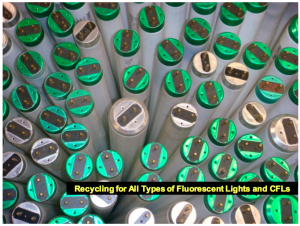
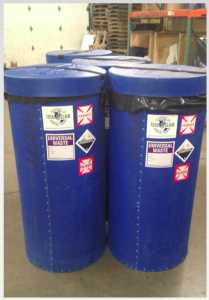
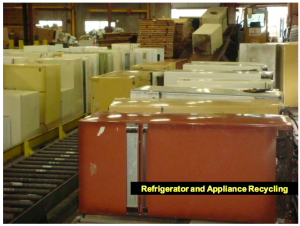
Many of these materials have hazardous chemicals in them and have to processed very carefully and with the employees wearing lots of protective clothing and face masks. Who knew that recycling had to be done with such caution. We are lucky to have a company like Total Reclaim, with top notch employees, to take care of our waste and to take care of our earth.
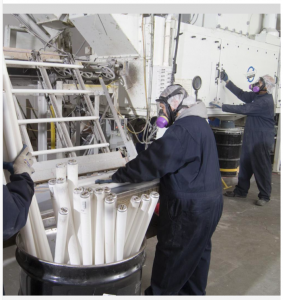
One of the coolest things we learned is how metal is recycled. First it goes through this epic grinder and then comes out in little pieces so it can be made into something new.
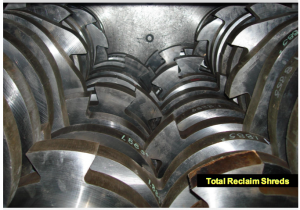
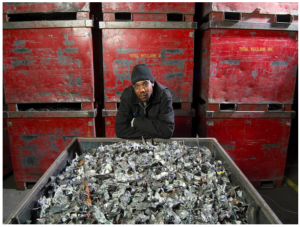
Here are all the items they help Alaskans recycle (and are eager to collect)
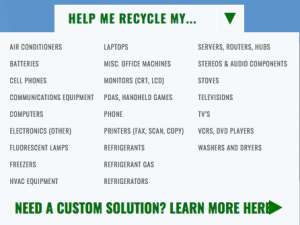
These informational sheets we were given are great tools for us to share with our family, friends, and community. This particular flyer is about the harmfulness of lights and when we dispose of them in the wrong way! We learned that our Mayor, Ethan Berkowitz, who cares about our environment, found out he had high levels of Mercury in his system because he eats a lot of fish (and the fish are getting this chemical in their water from us dumping waste in the water).
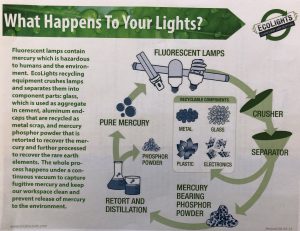 .
. 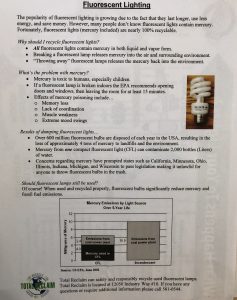
This other flyer we were given helps a lot because we seem to have a lot of electronics that most of us don’t know how to get rid of when they conk out! Check it out, it is super helpful.
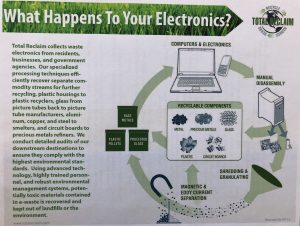 .
. 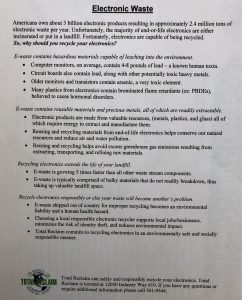
We are so thankful to have the experts come to us, to help us become knowledgable and to help us on our mission to become Global Citizens and take action in our local community. Here is some video footage of our experience.
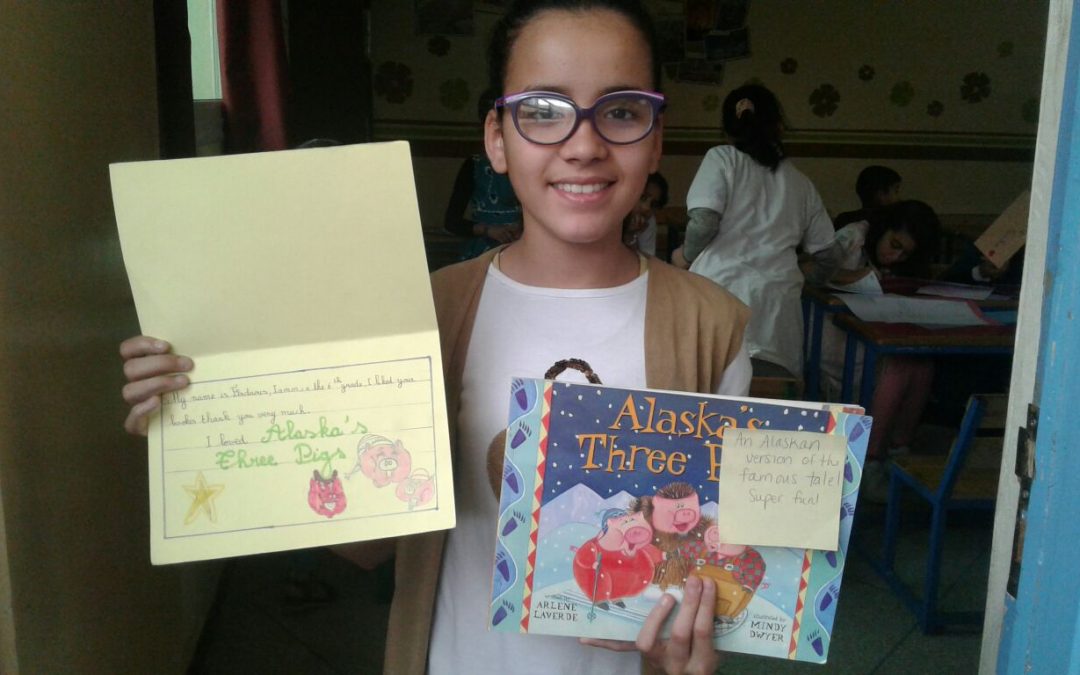
by Michelle Carton | Apr 18, 2018 | News
Last Spring students at Tudor Elementary raised 1,500 books to donate to a few chosen organizations. One of them was to Rural Alaska Reads program, which is a local student designed organization determined to get more books in the hands of students who live in rural villages in Alaska.
The other choice students made was to send books to a small school, Ajiyal Souss, in Agadir, Morocco. Students chose this school because they had the opportunity to learn all about school in Morocco from their librarian who visited in the spring. Students were so excited to get the opportunity to help add more books to their library.
The initial box weighed 53 pounds and cost several hundred dollars to send. About 6 months later, the box came back because it was over the maximum weight allowed to enter Morocco in a postal package. Students decided to re-strategize and send a much smaller box with mostly paperback books. This time they included cards and letters and descriptions for why the chosen books were in the box. Here is the video of the box being received!
Students were quite excited and decided to create thank you notes to our students. Teachers even recorded videos of students reading the books. Check this one out!
Here is the letter from the school, to our students, sharing their thoughts. We are looking forward to getting a chance to skype with students and teachers at the school in order to truly connect even more!
Keep scrolling after to view pictures~Click on a picture to view it larger!
Hello from Agadir, Morocco.
Dear teachers and Students
We really wanted to write about our experience, how happy we are about the gifts we got [from Tudor Elementary]. We as teachers felt so delighted, we really appreciate it, books are precious gifts it’s the best thing you can give because it’s a friend that will never leave your side no matter what. So once again thank you.
Students were amazed by the diversity of books and stories they got, their desire to read and learn new things about the language and the other students who were kind enough to share their precious books increased. They started reading and wrote some comments which we would like to share with you
- I SURVIVED, some or all the stories are based on true events, and the fact that the heroes are young people is interesting.
- MAGIC TREE HOUSE, I am happy to know that we are reading the same books.
- PETE THE CAT is so sweet and cute.
- Thank you for the signed book, we loved the new words we will try to learn them.
- DAIRY OF A WIMPY KID, the way that the story’s events are put together is so surreal, like if we capture a real emotional life and transformed it into another world of fun and humor, but still carry a message for the readers.
- DIARY OF A WIMPY KID, I loved the movie I will defiantly love the book.
- THREE PIGS, [variation] I wonder if this version will be as good as the old one.
- SILLY POEMS AND SONGS are so funny we will try to sing some for you in the near future.
- THE MYSTERY ON ALASKA…, I love that they are real kids in real places, so we can learn more about Alaska in an interesting way…
Since [the students] got the books and we told them it’s from Alaska, they wanted to know more so they asked a lot of questions!
- Is Alaska a state?
- What’s the weather like in there?
- When is it the best time of the year to visit Alaska?
- How do you manage to do your daily chores when it’s night during the day and vise versa?
- Do you all speak English or do have a dialect?
It is a one of a kind experience because we are trying to raise our students with the same values that you are promoting: being kind to one another, voicing your thoughts, young people having the power the change what‘s around you by your good deeds, and that it doesn’t matter where you are or where are you from or what language you speak … after all we are all human beings.
We are here to raise the quality of life for every child, we want all of our children to achieve their full potentials, and our task is to make it possible, what you did is a great way to start inspiring them to do more.
Once again it was an honor to be part of this experience,
Thank you,
Hafida Hatik
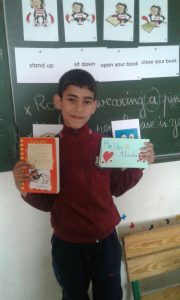 Showing their book gifts and thank you cards!
Showing their book gifts and thank you cards!
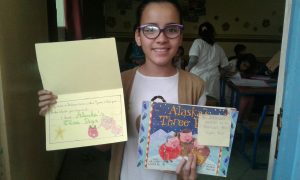
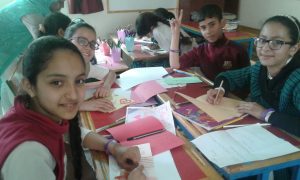
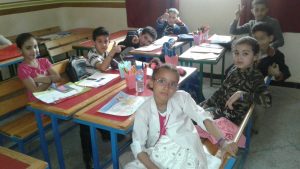
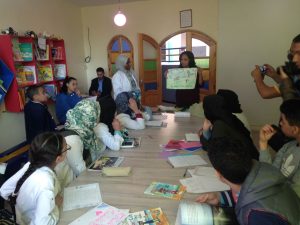
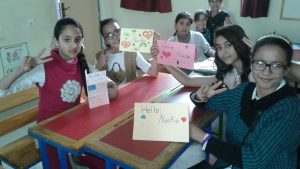
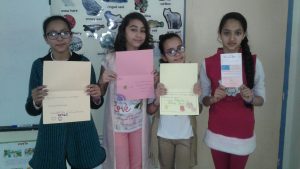
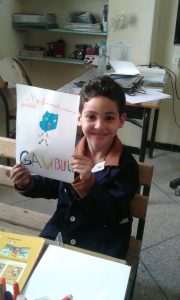
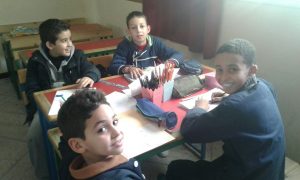
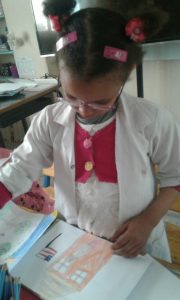
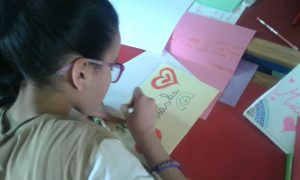
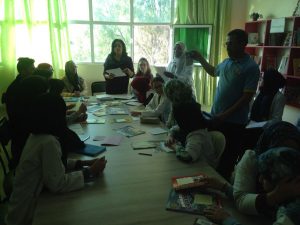
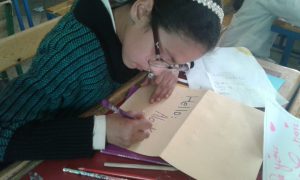
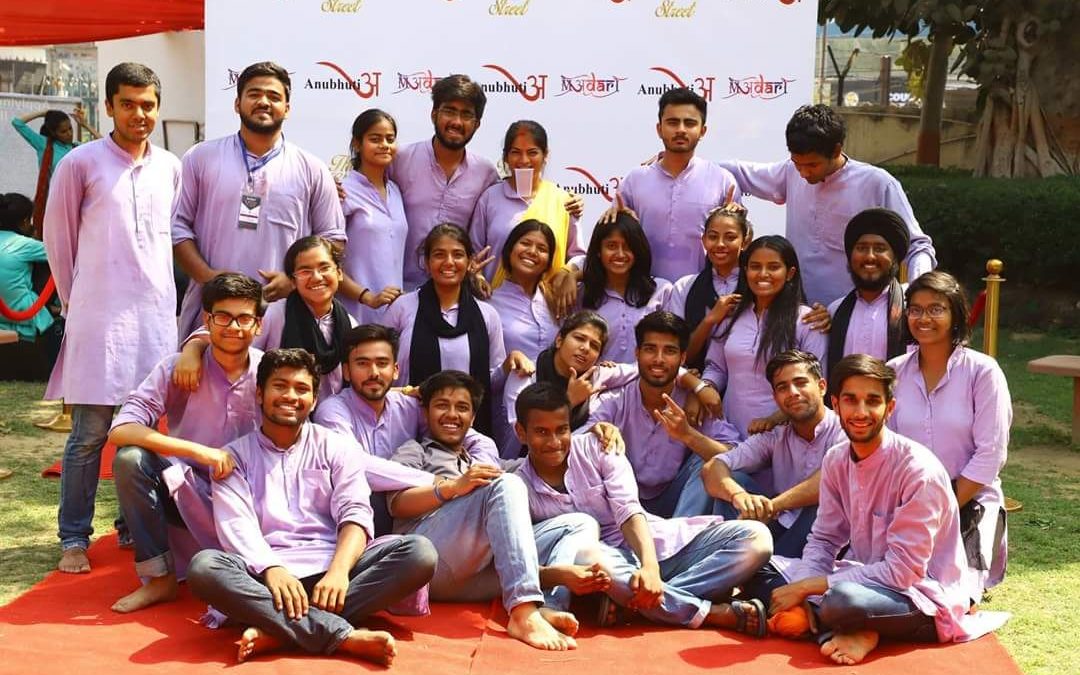
by Michelle Carton | Apr 12, 2018 | News
As Global Educators and Global Learners, it’s important that we find opportunities to embrace global understanding, citizenship, and learning. Recently I came across a young man who is passionate and empowered by the chance to have young people across the world use their voice through art. This next generation of global citizens is empowering voice for communities all over the world. His team’s international social change movement, Manthan, is a grassroots effort for the people to address the challenges in their community through art. I seized the opportunity to interview him and be showcased through Global Education Alaska. I welcome the kindness, tenacity, and intelligence of Anmol Arora, International Relations Manager and Global Citizen in Delhi, India. The following interview is inspiring.
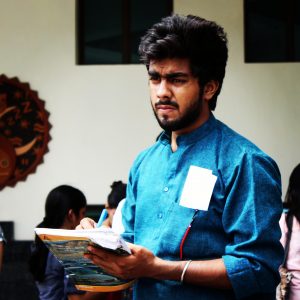
What do you believe?
Philanthropy and social change work are at their best when they are driven by your values and connected to what you care about most.
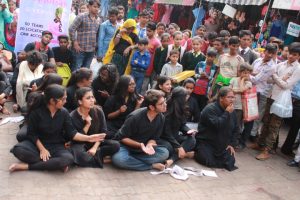
What led you here?
With the urge to change in the society and love in the hearts of theatre artists- Verve, The Street Play Society of Shaheed Sukhdev College of Business Studies, University of Delhi, brings the 11th edition of the month long exuberant festival, Manthan.
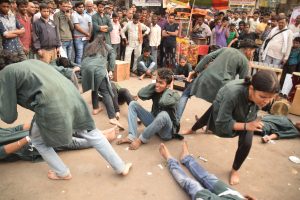
What is Manthan?
The word manthan itself means to churn and create something new. Manthan as a festival was started in 2007 as an effort to make everyone realize the immense power each one of us possesses, the power to raise our voices against the conventions which weigh us down, to fuel the process of change in different cities all over the country as well as international cities, with the help of college students.
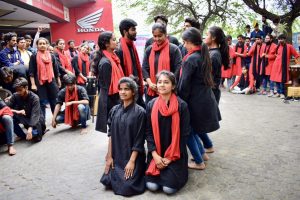
The prime motive of Manthan is to celebrate the spirit of street theatre and actively take part in instrumentalizing change. And to bring street theatre to public places and schools, to arise a sense of responsibility and cognizance about sensitive issues maligning the society, amongst the uninitiated. (translation for younger readers: to address and bring awareness to the problems in society)
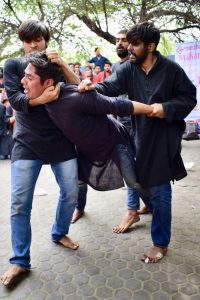
Manthan touches sensitive social issues through the means of Street Play entertainment which stimulates the audience to question things that would otherwise be overshadowed by their ignorance, lest Manthan serves as a source of enlightenment for them. We want our initiative to be spread across more and more places so as to make people aware; we tell ourselves lies all the time that we are not responsible for anything and we alone cannot bring in change, but we at Manthan believe that, the change lies within us only. Manthan’18 promotes that everything #LiesWithin.
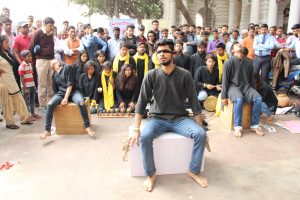
How did it begin?
It was started with just 3 teams performing at a single location in Delhi, National Capital. Manthan is a non-profit festival, which aims at promoting the art of street plays and taking it where it actually belongs, i.e. to the streets. Manthan’17 was organized in 44 cities at 125 different locations in 19 states of India and in 4 international locations -Russia, Brazil, Nigeria and Nepal.
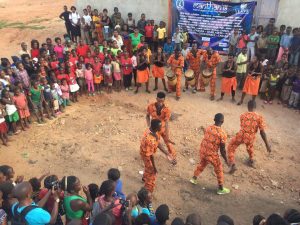
How does Manthan tie into Global Citizenship?
Being a global citizen is important for all of us so as to have a cultural and social insight across the borders. It is an experience where global connectivity turns out to be innate development of the person. At Manthan, we have cultural exchange catering to social issues existing between countries, have a discussion about those issues, and come to a prospective solution to problems that can work in either many of the countries. Trying out other cultures enhances your emotional capabilities and make you happier, even scientifically. Going out of your comfort zone refreshes your personality and makes you more humble and confident in the society.
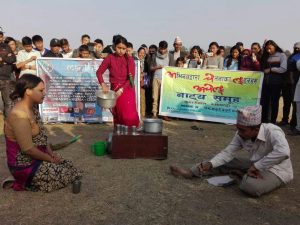
What’s Next?
Manthan’18 will incorporate 23 states, across 50 major cities (Delhi NCR, Mumbai, Pune, Goa, Chandigarh, Amritsar, Patiala, Agra, Jaipur, Lucknow, Kanpur, Jodhpur) and 2700 artists, with a total outreach of 200,000 people. To increase the gamut of the festival we have planned to organize Manthan’18 in Canada, Panama, Czech Republic, Afghanistan, Kenya, Nigeria, Bangladesh, Zambia, and Nepal.
Have you looked at expanding Manthan to the United States?
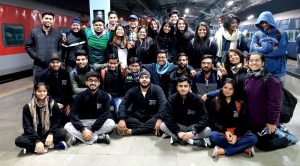
Yes, absolutely, and we would love to work with anyone willing to take that on. We are hoping that eventually the United States will join us in the empowering social change opportunity! If there is anyone interested in getting involved, you can reach me at manthan.international.2018@gmail.com
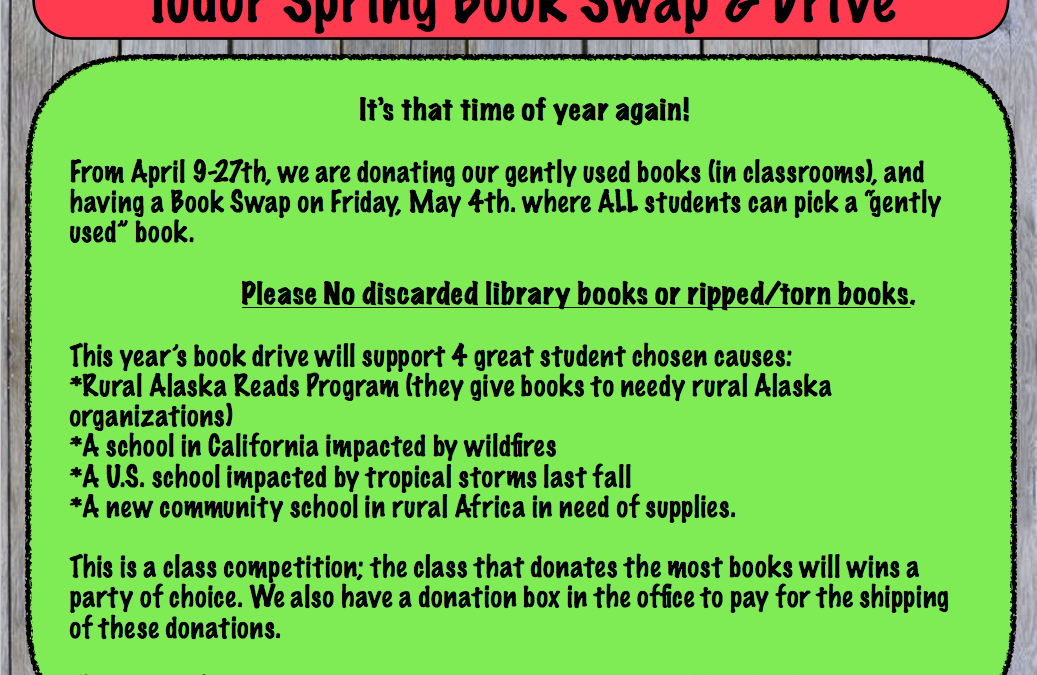
by Michelle Carton | Apr 11, 2018 | Global Students Connect, News
Hello All~
The end of the year is coming, but we still have some great ways to get involved. This week we kicked off our Tudor Spring Book & Drive where we are collecting books to give to designated organizations, chosen by students. This year, students decided to give books to a school in California impacted by wildfire, a school impacted by tropical storms last fall, a newly developed school in rural Africa, and schools in rural Alaska through Rural Alaska Reads Program. Here is the flyer for the Book Drive: spring book drive families
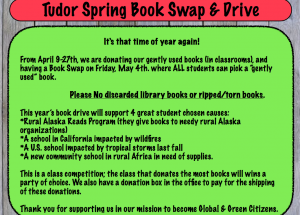
Our next big exciting activity is our Global Earth Day project, which invites classes all over the world to simply share together what they are doing in honor of Earth Day. In the first 48 hours after the project posted online, interest was received from 27 countries/locations. This will be a super exciting showcase. In May, a blog post and video will highlight #EarthDay2018. Information can be shared here: https://padlet.com/carton_michelle/onehome
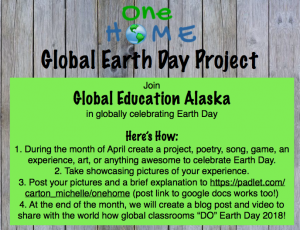
Happy Spring!

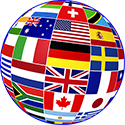















 .
. 













 .
. 
 .
. 

 Showing their book gifts and thank you cards!
Showing their book gifts and thank you cards!
























Recent Comments